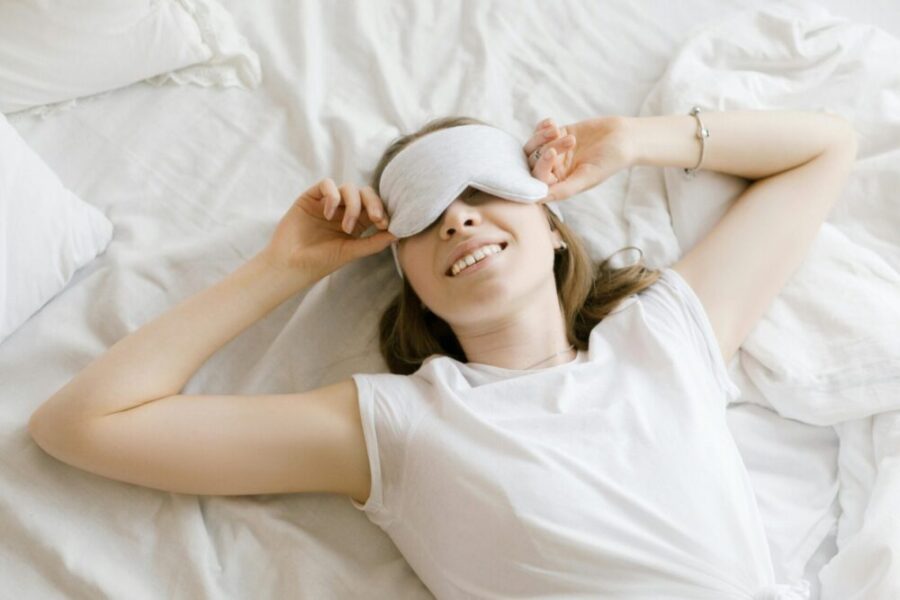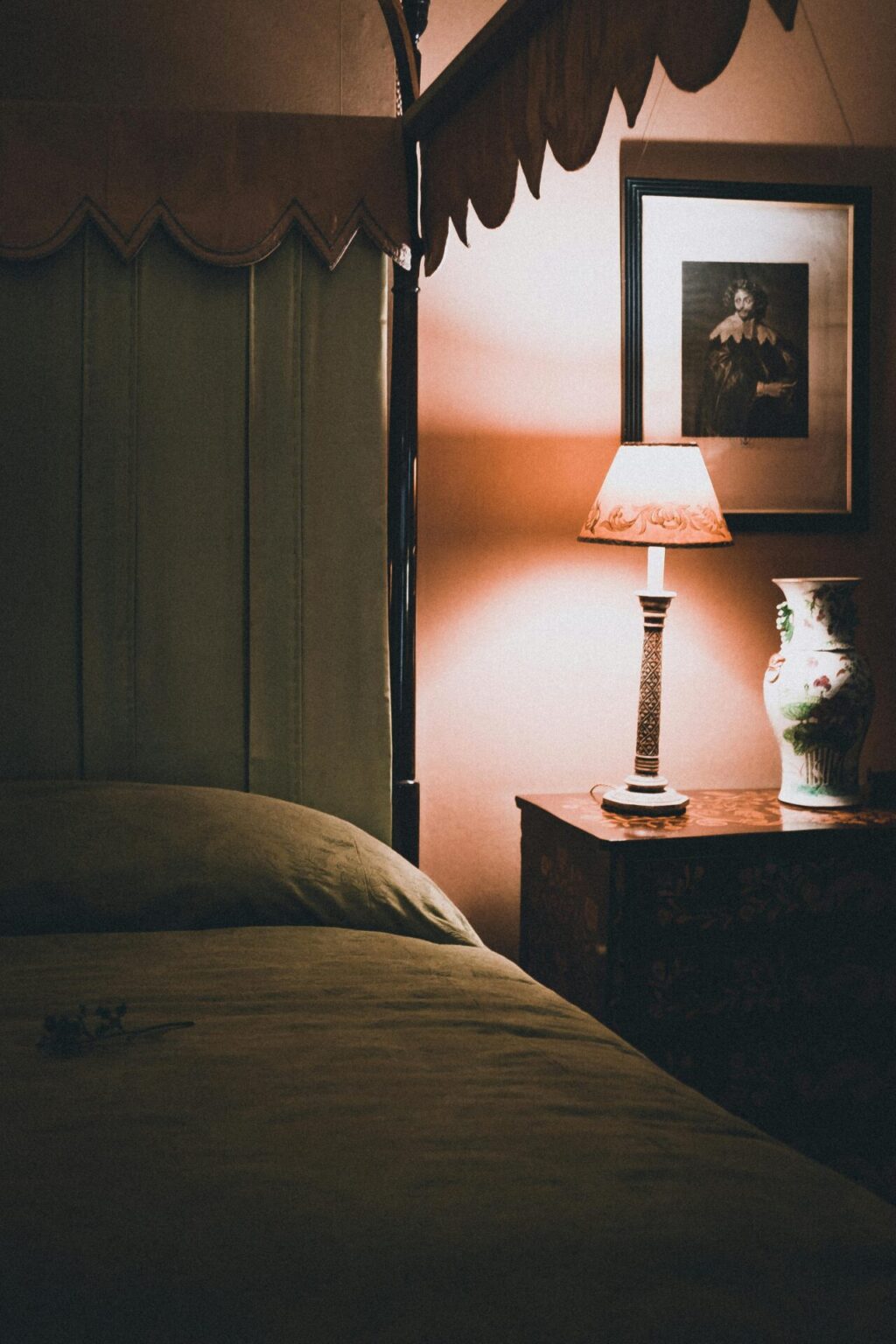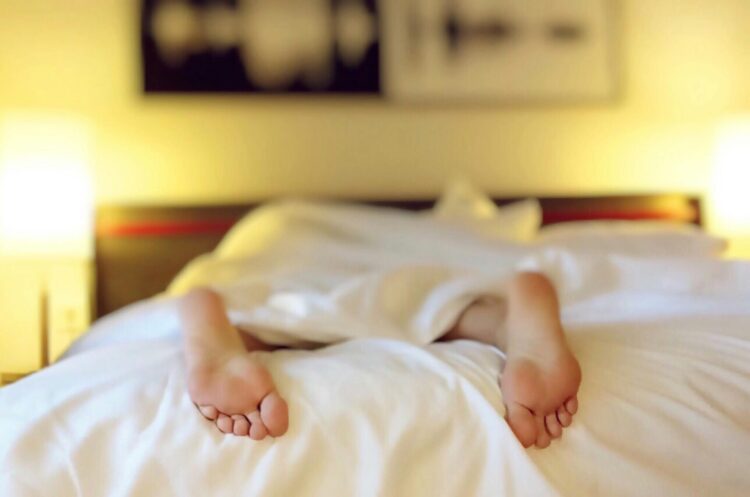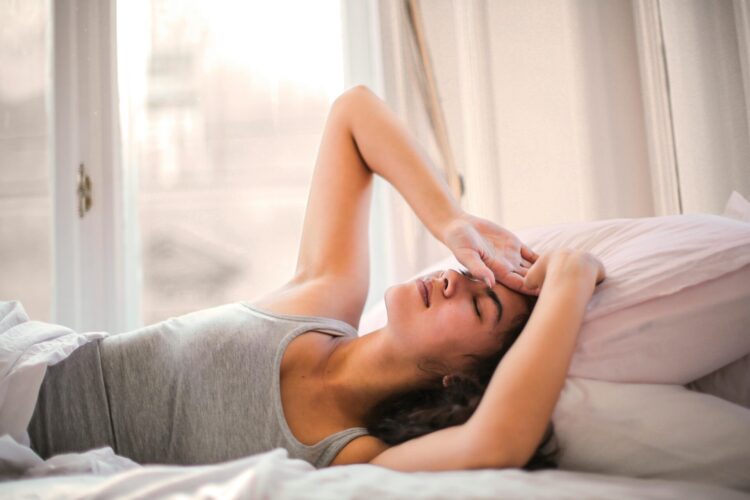
What is sleep hygiene?
Sleep hygiene refers to healthy sleep habits that help you get a good night’s sleep.
Good sleep hygiene is important because of how crucial getting good sleep is for your mental and physical health, as well as your overall quality of life.
Your behaviors during the day — not just before you go to bed — can affect how well you sleep. This can include:
- food and drink choices
- schedule
- evening routine
If you don’t sleep well, you can take several steps, both during the day and before you go to bed, to improve your sleep.
Let’s take a closer look at 12 ways to improve your sleep hygiene for better sleep.
Try to go to sleep and wake up at about the same times every day — even on weekends. This reinforces your body’s sleep cycle (your internal clock), which can make it easier for you to fall asleep and wake up every day.
Sticking to a consistent schedule may also help reduce daytime sleepiness.
Make sure that the bedtime you pick allows you to get 7– 8 hours of sleep each night.
A relaxing bedtime routine helps you unwind so you’re ready to sleep. Keeping the routine consistent helps your body recognize that it’s bedtime when you start the routine. This may help you fall asleep more quickly.
The best time to start your routine is about 30– 60 minutes before you go to bed.
Your routine can include whatever makes you feel most relaxed unless it involves a device that emits blue light. Here are some ideas:
- Take a warm bath or shower. Not only is the water relaxing in the moment, but the drop in your body temperature as you cool down afterward may make you feel sleepy.
- Try some gentle stretches or yoga to help your muscles relax and release tension.
- Spend a few minutes meditating to help calm your body and mind.
- Try listening to some soothing music while you focus on your breathing.
- Spend time reading a book, but try to avoid electronic reading devices that emit blue light.
Avoid anything stressful or overly stimulating, like emotional conversations or working.
Electronic devices like your phone emit blue light, which can reduce melatonin levels in your body. It’s similar to how seeing sunlight can make you feel more awake.
Melatonin is a chemical that controls your sleep/wake cycle. When your levels dip, it can be more difficult to fall asleep.
Devices that emit blue light can also keep your brain alert, making it harder to fall asleep.
Keeping your phone near your bed can disrupt your sleep, even if you’re not aware of it. Message notifications, buzzing, and light that can suddenly pop on in the middle of the night can interrupt your sleep.
As little as 30 minutes of aerobic exercise per day can improve your sleep quality and overall health. Exercising outside might increase the benefits even more since exposure to natural light helps regulate your sleep cycle.
If you can’t get outside, don’t worry. Regular indoor exercise can also help you sleep better.
But avoid exercising within an hour or two of your bedtime. This can increase your energy levels and body temperature, which may make it harder to fall asleep.
If you want to do some type of activity later in the day, try doing stretches or yoga.
The effects of caffeine can last 3–7 hours after you consume it. This means that your afternoon cup of coffee may keep you awake and alert a lot longer than you’d like.
Although it’s usually best to limit your caffeine intake to the morning hours, keep in mind that everyone has a different tolerance to caffeine.
Some people may be able to stretch their consumption to midafternoon, while others might need to cut themselves off much earlier in order to fall asleep easily.
The less caffeine you consume, the more sensitive you may be to its effects.
6. Make your sleep environment work for you
The way you set up your sleep environment may help you fall asleep and stay asleep more easily.
For most people, a bedroom temperature between 60 and 67°F (15.6 and 19.4°C) is the optimal temperature for sleeping.
It’s also important to make sure you have a comfortable mattress, pillows, and bed linens. The more comfortable you are, the easier it may be to fall asleep and stay asleep. Want suggestions? Browse our market, filled with editor-trusted and expert-verified pillow and mattress recommendations.
If you’re a light sleeper or have noisy neighbors, a good pair of earplugs or a white noise machine may help you sleep without disruption.
Also, if your bedroom gets flooded with too much light, you may want to consider using blackout curtains or an eye mask to keep your sleep environment as dark as possible.
Q: Can a mattress that relieves pressure points, such as a foam mattress, help people sleep better?
Anonymous
A: If you have pain in certain areas of your body, you may benefit from a mattress that relieves pressure points.
A mattress that can provide comfort and support will allow you to have a restful sleep.
The type of mattress and degree of firmness is based on personal preference. In general, an old mattress, more than 10 years old or with visible sagging, will not be comfortable or supportive.
A mattress that helps you maintain spinal alignment while you sleep is important to help the structures surrounding the spine relax and recover during sleep.
Spinal alignment is important to reduce back pain and maintain proper posture.
Angelica Balingit, MD, board certified, internal medicine
Answers represent the opinions of our medical experts. All content is strictly informational and should not be considered medical advice.
7. Use your bed only for sleep and sex
When you have a comfortable bed, it might be tempting to use it for reading, working, talking on the phone, watching TV, or other activities.
However, it’s important to use your bed for sleep and sex only. This helps strengthen your brain’s association between your bed and sleep, making it easier to fall asleep.
Reading may be one way you relax before going to sleep, but even books can be disruptive to your sleep if they keep your brain alert. Try reading on the couch before moving to your bed instead.
8. Go to bed only when you’re tired
If you’re not tired, avoid lying in bed while you toss and turn. Instead, try doing a relaxing activity until you start to feel tired, then head to bed.
If you don’t fall asleep within 20 minutes of going to bed, get up. Not being able to fall asleep may cause you to become frustrated or stressed, which can keep you awake even longer.
Once you get out of bed, do something to help you unwind, like reading on the couch or stretching until you’re tired enough to go back to bed.

Napping during the day can make it harder to fall asleep later and may make you more prone to waking up during the night.
If you do need to nap:
- Keep it to 20 minutes or less. Trusted Source.
- Avoid napping later in the afternoon.
Napping may affect the sleep pattern of older adults more than younger people, but the extent of this is still unclear.
Thinking about things you’re worried about can keep you awake at night. To help prevent your worries from keeping you awake:
- Write down your worries before going to bed to help get them out of your head.
- If your to-do list stresses you out, write that down as well. Prioritize what you need to do tomorrow and the rest of the week, then try to relax.
- Research suggests that a weighted blanket may help with anxiety and insomnia, and it may provide benefits similar to deep pressure therapy.
- Try meditation before bed to help calm your mind.
Eating a large meal before bed may negatively affectTrusted Source your sleep quality. It may also cause symptoms of acid reflux, which can keep you awake.
ExpertsTrusted Source also recommend avoiding alcohol and nicotine, especially before bed, as they can worsen your sleep quality.
12. Manage your light exposure
Spending time in natural light can help manage your circadian rhythm. Experts Trusted Source recommend getting sunlight exposure in the morning and throughout the day, if possible.
Limiting light exposure after sunset may help benefit your sleep and support the production of hormones and chemicals necessary for sleep. You can do this by:
- using warm-light spectrum lightbulbs in the rooms you spend time in before bed
- turning off extra lights in the hours before bed
- dimming lights a few hours before bed, if possible
- setting your electronic devices to go into “night” mode after sunset, which reduces blue light exposure
If you’re a shift worker, you can take different steps to manage light exposure and support sleep.
The bottom line
Sleep hygiene is about having healthy sleep habits. Your behaviors, both during the day and around bedtime, can affect the quality of your sleep.
If you have a hard time falling or staying asleep, you can try several strategies to fall asleep faster — and stay sleeping for hours at a time. Most of these involve improving your sleep hygiene.
Sticking to a schedule, having a relaxing bedtime routine, exercising regularly, keeping your bedroom dark and at a comfortable temperature, and watching what you eat and drink can all impact the quality of your sleep.
If you continue to have issues with your sleep patterns or insomnia, be sure to follow up with your doctor. They can determine whether an underlying condition is causing your sleep problems and can provide the treatment you may need.
References
Medically reviewed by Thomas Johnson, PA-C — Written by Erica Hersh (March 27, 2024). 12 Healthy Sleep Hygiene Tips Healthline. Retrieved from https://www.healthline.com/health/sleep-hygiene#bottom-line


